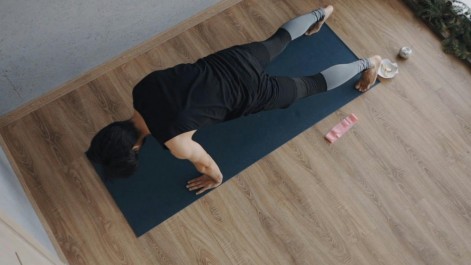In the fast-paced modern world, where stress and distractions abound, finding moments of calm and clarity can be challenging. However, amidst the chaos, the practice of mindfulness offers a path to greater presence, resilience, and well-being. In New Zealand, a country known for its stunning natural landscapes and laid-back lifestyle, the principles of mindfulness resonate deeply with its people. In this blog, we'll explore the practice of mindfulness and its benefits for mental health, offering simple exercises and mindfulness techniques tailored to everyday life in New Zealand.
What is Mindfulness? Mindfulness is the practice of intentionally paying attention to the present moment with openness, curiosity, and non-judgment. It involves bringing awareness to our thoughts, feelings, bodily sensations, and the environment around us, without getting caught up in automatic reactions or judgments. By cultivating mindfulness, we can develop greater clarity, emotional resilience, and a deeper sense of connection to ourselves and the world around us.
Benefits of Mindfulness for Mental Health: Numerous studies have demonstrated the profound benefits of mindfulness for mental health and overall well-being. In New Zealand, where mental health issues are increasingly recognised and addressed, mindfulness has emerged as a valuable tool for promoting resilience and coping with the stresses of daily life. Some of the key benefits of mindfulness include:
Stress Reduction: Mindfulness practices, such as mindful breathing and body scans, have been shown to reduce stress levels by activating the body's relaxation response and promoting a sense of calmness and tranquility.
Improved Emotional Regulation: By increasing awareness of our thoughts and emotions, mindfulness helps us develop greater emotional intelligence and regulation. This can lead to enhanced mood stability and a reduced risk of anxiety and depression.
Enhanced Focus and Concentration: Regular mindfulness practice has been found to improve attentional control and cognitive function, leading to better focus, concentration, and productivity in daily tasks.
Increased Resilience: Mindfulness fosters a sense of inner strength and resilience by helping us cultivate acceptance, adaptability, and non-reactivity to life's challenges and setbacks.
Better Relationships: Mindfulness promotes empathy, compassion, and non-judgmental awareness, which can enhance our interpersonal relationships and communication skills, fostering deeper connections with others.
Enhanced Self-Awareness: Mindfulness encourages introspection and self-reflection, allowing individuals to gain insight into their thoughts, feelings, and behaviors. This heightened self-awareness can lead to greater self-acceptance, self-esteem, and a deeper understanding of oneself.
Reduced Rumination: Mindfulness helps break the cycle of rumination, or repetitive negative thinking, by teaching individuals to observe their thoughts without getting caught up in them. This can alleviate symptoms of depression and anxiety and promote a more balanced perspective on life's challenges.
Better Sleep Quality: Mindfulness practices, such as guided meditation or progressive muscle relaxation, can promote relaxation and reduce insomnia symptoms, leading to improved sleep quality and overall restfulness.
Pain Management: Mindfulness-based interventions have been shown to reduce the perception of pain and increase pain tolerance by changing the brain's response to painful stimuli. This can be particularly beneficial for individuals living with chronic pain conditions.
Enhanced Overall Well-Being: By fostering a holistic approach to health and wellness, mindfulness supports physical, mental, and emotional well-being. It encourages individuals to live in the present moment, savoring life's simple pleasures and finding gratitude in everyday experiences.
Examples and Suggestions: Incorporating mindfulness into daily life in New Zealand doesn't require lengthy meditation sessions or special equipment. Instead, simple practices and mindfulness techniques can be seamlessly integrated into everyday routines, allowing us to cultivate presence and resilience amidst the busyness of life. The following are some examples and suggestions:
- Mindful Walking: Take a leisurely stroll in one of New Zealand's beautiful parks or natural reserves, such as the Waitakere Ranges or the Tongariro Alpine Crossing. Pay attention to the sensation of each step, the sights, sounds, and smells around you, and the feeling of the ground beneath your feet.
- Nature Meditation: Find a quiet spot outdoors, whether it's a secluded beach, a lush forest, or a tranquil garden. Sit comfortably and close your eyes, focusing on the sounds of nature, the feeling of the breeze on your skin, and the gentle rustling of leaves. Allow yourself to be fully present in the natural environment, letting go of any distractions or worries.
- Mindful Eating: Savour the flavours and textures of locally sourced New Zealand produce, such as fresh seafood, organic fruits, and artisanal cheeses. Take your time to chew each bite slowly and mindfully, noticing the taste, smell, and sensation of each mouthful. Pay attention to your body's hunger and fullness cues, and eat with gratitude for the nourishment provided.
- Breath Awareness: Take a few moments each day to practice mindful breathing, whether it's upon waking in the morning, during a coffee break, or before bed. Close your eyes and bring your attention to your breath, feeling the rise and fall of your chest and abdomen with each inhale and exhale. Notice any thoughts or distractions that arise, and gently return your focus to the breath.
- Gratitude Practice: Cultivate a sense of gratitude for the beauty and abundance of life in New Zealand by keeping a gratitude journal. Each day, take a few minutes to write down three things you're thankful for, whether it's a stunning sunset, a friendly encounter with a stranger, or a delicious meal shared with loved ones. Reflecting on these blessings can help shift your perspective towards positivity and contentment.
- Mindful Gardening: Spend time tending to your garden or outdoor plants, connecting with the earth and the natural cycles of growth and renewal. Notice the sensations of digging in the soil, planting seeds, and nurturing plants as they flourish. Use this time as an opportunity to cultivate mindfulness by focusing on the present moment and observing the beauty of nature unfolding before you.
- Mindful Listening: Take a moment to truly listen to the sounds of the environment around you, whether it's the chirping of birds, the rustling of leaves, or the distant sound of waves crashing against the shore. Allow yourself to become fully absorbed in the auditory experience, letting go of any internal chatter or distractions. Practice deep listening without judgment or analysis, simply allowing the sounds to wash over you and bring a sense of peace and tranquility.
- Mindful Movement: Engage in gentle movement practices such as yoga, tai chi, or qigong to cultivate mindfulness and body awareness. Focus on the sensation of movement as you flow through each pose or sequence, tuning into the rhythm of your breath and the subtle shifts in your body. Allow movement to become a meditation in motion, bringing a sense of grace and ease to your physical and mental well-being.
- Mindful Technology Use: Take a mindful approach to using technology by setting boundaries and being intentional about your digital consumption. Practice mindful screen breaks throughout the day, stepping away from electronic devices to give your mind and eyes a rest. When using technology, notice how it affects your thoughts and emotions, and strive to use it in a way that supports your overall well-being and presence in the moment.
- Mindful Communication: Practice mindful communication by being fully present and attentive during conversations with others. Listen deeply to what the other person is saying, without interrupting or formulating a response in your mind. Notice any judgments or assumptions that arise, and strive to respond with empathy, compassion, and authenticity. By cultivating mindful communication, you can foster deeper connections and understanding in your relationships, both personal and professional.
Discovering mindfulness in New Zealand is made easier with a range of resources at your fingertips. Explore local workshops, online courses, meditation groups, and more to cultivate presence and inner peace in your daily life for example.
- Mindfulness Works NZ: Offers a variety of mindfulness courses, workshops, and online resources tailored to individuals interested in incorporating mindfulness into their daily lives. Website: mindfulnessworks.co.nz
- Local Community Centers: Many community centers in New Zealand host mindfulness events, classes, and group meditation sessions. Check with your local community center for upcoming mindfulness offerings.
- Yoga Studios: Yoga studios often offer mindfulness classes, meditation sessions, and workshops focused on cultivating presence and inner peace. Find a yoga studio near you and inquire about their mindfulness offerings.
- Wellness Retreats: Wellness retreats in New Zealand frequently include mindfulness practices as part of their programs. Consider attending a retreat to immerse yourself in mindfulness teachings and practices in a supportive and nurturing environment.
- Mental Health Professionals: Many psychologists, counselors, and therapists in New Zealand incorporate mindfulness-based approaches into their therapeutic work. If you're seeking individualized support for mental health concerns, consider seeking out a mental health professional who specializes in mindfulness-based therapy.
- Books and Online Resources: There are numerous books, articles, and online resources available to support your mindfulness journey. Explore titles by renowned mindfulness teachers such as Jon Kabat-Zinn, Thich Nhat Hanh, and Tara Brach, or visit reputable mindfulness websites and forums for additional guidance and inspiration.
- Mindfulness Apps: Mobile apps like Headspace, Calm, and Insight Timer offer guided meditations, mindfulness exercises, and relaxation techniques that you can access anytime, anywhere. Download a mindfulness app to have mindfulness practices at your fingertips wherever you go.
- Mindfulness-Based Stress Reduction (MBSR) Programs: Look for MBSR programs offered in your area, which typically consist of structured courses designed to teach mindfulness skills for stress reduction and overall well-being. These programs are often facilitated by certified MBSR instructors and provide a supportive community for learning and growth.
- Online Courses and Workshops: Many mindfulness teachers and organizations offer online courses and workshops that you can participate in from the comfort of your own home. Explore online platforms like Udemy, Coursera, and Mindful.org for a wide range of mindfulness offerings suited to your interests and schedule.
- Local Meditation Groups: Joining a local meditation group or sangha can provide valuable support and camaraderie on your mindfulness journey. Search for meditation groups in your area and consider attending group sits or discussions to connect with like-minded individuals and deepen your practice.
Embracing mindfulness in daily life is not just a practice; it's a transformative journey towards inner peace and well-being. In New Zealand, where the natural beauty and cultural richness abound, integrating mindfulness into our routines offers a profound way to connect with ourselves and the world around us. Whether we're taking a mindful walk amidst the breathtaking landscapes, savoring the flavours of locally sourced cuisine, or simply pausing to breathe deeply, mindfulness invites us to fully immerse ourselves in the present moment, embracing the essence of life in Aotearoa.
Back to Blog







